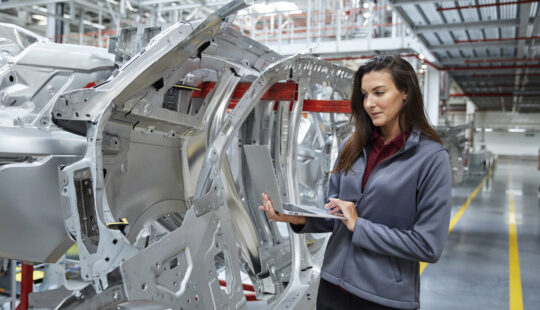SAP has committed to set 1.5°C science-based emissions reduction targets aligned with a net-zero future, responding to what the latest climate science indicates is needed to limit the worst impacts of climate change.
SAP is one of seven global companies that already have 1.5°C-aligned reduction targets, and the first in Germany.
The company has responded to a call to action issued by a broad coalition of business, civil society, and United Nations (UN) leaders to make the critical and necessary contribution to keeping global temperature increase within 1.5°C above pre-industrial levels.
“While much of SAP’s ability to create a sustainable future lies in how we enable customers to create positive economic, social, and environmental impact through our product portfolio, SAP’s ambition has always been to lead by example and be a credible role model,” said SAP Chief Sustainability Officer Daniel Schmid. “To contribute to the UN Sustainable Development Goal 13: Climate Action, we aim to become carbon neutral in SAP’s own operations by 2025. But our responsibility goes beyond that. In line with our vision and purpose to help the world run better and improve people’s lives, we are committed to join the global movement of leading companies and align our businesses with the most ambitious aim of the Paris Agreement to prevent global warming exceeding 1.5°C. Our strong cloud strategy will be a key driver based on efficiency gains in our data centers and a significant increase of our cloud customers.”
Setting Ambitious Emissions Reduction Targets
In June, global leaders — including Her Excellency María Fernanda Espinosa Garcés, president of the UN General Assembly; Lise Kingo, CEO and executive director of the UN Global Compact; Patricia Espinosa, executive secretary of the UN Framework Convention on Climate Change; John Denton, Secretary-General of the International Chamber of Commerce; and SDG Advocate Paul Polman, former CEO of Unilever — collectively issued an open letter addressed to business leaders.
The letter challenges chief executive officers to set ambitious targets for their companies in line with last October’s report by the Intergovernmental Panel on Climate Change (IPCC), which made the case for limiting global temperature rise to 1.5°C above pre-industrial levels.
Companies are asked to set verifiable science-based targets through the Science Based Targets initiative (SBTi), which independently assesses corporate emissions reduction targets against scientific best practice.
Building a prosperous, net-zero carbon economy by 2050 requires a transformation of unprecedented pace and scale, with decisive business leadership and investment in climate solutions supported by ambitious government policies. By setting ambitious policies and targets in line with a 1.5°C trajectory, governments give business the clarity and confidence to invest decisively in the zero-carbon economies of the future.
“We need concrete, realistic plans by 2020 to reduce greenhouse gas emissions by 45 percent over the next decade, and to net zero by 2050,” said Ambassador Luis Alfonso de Alba, UN Special Envoy for the 2019 Climate Action Summit, and one of the key advocates for the campaign. “Climate change requires an unprecedented effort from all sectors of society, and business leadership demonstrated by setting science-based targets at 1.5°C will send strong market signals as we look to identify the scalable and replicable solutions needed to secure a world where no one is left behind.”
“We have less than 11 years to fundamentally change our economies or we will face catastrophic consequences,” said Lise Kingo, CEO and executive director of the UN Global Compact, an SBTi partner. “For the first time, we are seeing business and climate leaders coalesce around a common call to action, sending a powerful signal that science-based target setting presents a significant opportunity for businesses to step up when it comes to tackling climate change and limiting global warming to 1.5°C.”
Paul Simpson, CEO of CDP, an SBTi partner, said, “The science is clear: In order to limit the catastrophic impacts of climate change, we must ensure warming does not exceed 1.5°C. The ambition is high, but it’s achievable, and science-based targets give companies a roadmap for getting there. Corporations worldwide have an unprecedented opportunity to be at the very forefront of the transition to a net-zero economy — and there is no time to lose.”



